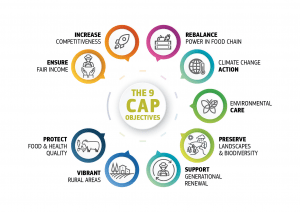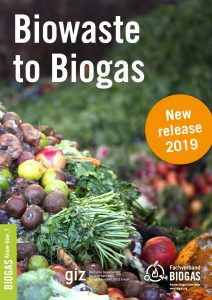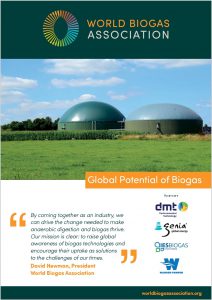|
On 30 July 2019 the European Commission has published the roadmap on EU’s common agricultural policy (CAP) to evaluate the impact of sustainable management on soils. This evaluation, which is part of a series of evaluations on the performance of the CAP against its general objectives, will assess in particular the extent to which CAP instruments and measures have contributed, through agriculture and forestry land use and practices, to sustainable management of the soil and have influenced soil quality.
 Soil is one of the most important natural resources. It absorbs all the consequences of human presence. Soil quality is an important environmental, climate and economic concern. Agriculture and forestry have an important influence over the management of soil resources while also being heavily dependent on them. Farming and forestry cover about three quarter of the EU’s land surface area. Soil is one of the most important natural resources. It absorbs all the consequences of human presence. Soil quality is an important environmental, climate and economic concern. Agriculture and forestry have an important influence over the management of soil resources while also being heavily dependent on them. Farming and forestry cover about three quarter of the EU’s land surface area.
Agricultural and forestry practices play a key role in terms of impacting on soil erosion, compaction, organic matter, biodiversity, pollution or salinisation. One of the EU’s common agricultural policy (CAP) general objectives is the sustainable management of natural resources and climate action. Important elements of this are the prevention of soil erosion and the improvement of soil management.
The evaluation will contribute to the report from the Commission to the European Parliament and the Council that is due by 2021 on the performance of the CAP, as well as provide evidence for policy development in this area. The purpose and scope of this evaluation is to provide a full view on how the CAP instruments and measures are performing against the objective of sustainable management of the soil.
ECN will contribute to this initiative and will follow up the ongoing activities with DG AGRI. The Commission is planning to launch an internet-based consultation on practical experience with the implementation and effects of the CAP instruments on soils in the fourth quarter of 2020.
Please provide your feedback to the roadmap as stakeholder or citizen until 27 August 2019 here.

ISWA World Congress 2019, 7-9 October, Bilbao (ES)
Benefits of compost and carbon on soils
A specific bio-waste session will be held on 7 October 2019 during the ISWA World Congress. Organised and moderated by the Chair of ISWA’s Working Group on Biological Treatment of Waste (BTW) Marco Ricci-Jürgensen, the session will focus on the ‘benefits of compost and carbon on soils’.
ISWA’s Vice-Chair of the working group BTW, Jane Gilbert will present ISWA’s project work on carbon and soil. Speakers from the European Compost Network and the European Biogas Association will contribute by presenting the potential of biowaste for the production of compost and biogas in Europe. Finally, the session will be closed by introducing the new initiative ‘SOS - Save Organics in Soil’ of the Soil Organic Matter Alliance.
The programme of the session on 7 October 2019 (2-4pm) as listed below can be accessed here:
- Benefits of compost and carbon on soils - Jane Gilbert, Carbon Clarity (UK)
- Compost production in Europe -Stefanie Siebert, European Compost Network (Germany)
- The new “Biowaste to Biogas” guideline - Mathias Hartel, European Biogas Association, Fachverband Biogas (Germany)
- The new European campaign SOS – Save Organics on Soils - Massimo Centemero, Vice-chair of European Compost Network & CIC (Italy) / Kristel Vandenbroek, Chair of European Compost Network
We would like to welcome all interested people to join the session and to sign the new ECN initiative ‘SOS – Save Organics in Soil’ at the ISWA World Congress 2019.
Further information on the SOS campaign will be published soon on ECN’s website. www.compostnetwork.info
Program of technical visits at the ISWA World Congress
As a complement to the World Congress ISWA2019, the organization has planned a series of technical visits whose program is now ready and can be consulted in all details on the Congress website. Four visits to the same number of local waste treatment facilities are planned, which will take place on Wednesday and Thursday, 9 and 10 October, at a price of 40 € each.
The programme of the technical visits can be accessed here.

German Biogas Association
New edition of ‘Biowaste to Biogas’ is now online!
The first edition of the brochure 'Biowaste to Biogas', published by the German Biogas Association (GBA), was a big success in 2016. Consequently, GBA revised the brochure with new exciting content, new reference plants around the world and company portraits of internationally active biogas companies.
 'Biowaste to Biogas' provides a market overview of advantages and possibilities digesting municipal, industrial and commercial biowaste as well as animal and vegetable by-products. Due to the international importance of the topic, a complete chapter dedicated to the separate collection of municipal biowaste was included. The brochure also provides further information on the preparation of feedstock for anaerobic digestion. Furthermore, all chapters were revised and improved as well as adapted to offer more useful information to readers in industrial, developing and emerging countries. New reference plants show the biogas technology boom around the world and a catalogue of companies active in the biogas sector offering different products and services make this brand-new edition a must have source of information. 'Biowaste to Biogas' provides a market overview of advantages and possibilities digesting municipal, industrial and commercial biowaste as well as animal and vegetable by-products. Due to the international importance of the topic, a complete chapter dedicated to the separate collection of municipal biowaste was included. The brochure also provides further information on the preparation of feedstock for anaerobic digestion. Furthermore, all chapters were revised and improved as well as adapted to offer more useful information to readers in industrial, developing and emerging countries. New reference plants show the biogas technology boom around the world and a catalogue of companies active in the biogas sector offering different products and services make this brand-new edition a must have source of information.
'Biowaste to Biogas' was conceived and realized by the German Biogas Association in cooperation with Deutsche Gesellschaft für Internationale Zusammenarbeit (GIZ) GmbH, the International Solid Waste Association (ISWA) and the Indian Biogas Association (IBA).
The brochure can be viewed and downloaded online at www.biowaste-to-biogas.com.

World Biogas Association
Global potential of biogas
The new report from the World Biogas Association (WBA) aims to highlight the potential of anaerobic digestion (AD) as a technology to generate renewable energy, abate GHG emissions and recover organic nutrients and carbon for use on soil. The report also sets out the potential of AD to help meet the climate change targets under the Paris Agreement.
 The key finding of this report is that AD has the potential to reduce global GHG emissions by 3,290 to 4,360 Mt CO2 eq., which is equivalent to 10-13% of the world’s current greenhouse gas emissions. The report estimates the potential of all organic materials (livestock manure, sewage, crop residues, energy crops and food waste) worldwide. The key finding of this report is that AD has the potential to reduce global GHG emissions by 3,290 to 4,360 Mt CO2 eq., which is equivalent to 10-13% of the world’s current greenhouse gas emissions. The report estimates the potential of all organic materials (livestock manure, sewage, crop residues, energy crops and food waste) worldwide.
With reference to capture the potential of food waste the authors stress the importance of introducing separate collection: ‘Separate collection of food waste is the key to unlocking the potential of food waste in terms of energy generation, GHG emissions abatement and nutrient recovery. It also has an important role to play in modifying our current processes in favour of implementation of circular economy in the future. According to the Ellen MacArthur foundation, less than 2% of inedible food by-products are currently being collected for energy and nutrient recovery.’
As reported in the newly published ECN Status Report 2019 on ‘European Bio-Waste Management’ only 23% bio-waste from municipal solid waste is separately collected and treated in composting and anaerobic digestion (AD) plants in Europe. This bio-waste, including garden waste and food waste, is composted (30.5 %) and digested (12.4 %) or treated in combined AD/composting plants (4.6 %).
We fully support the policy recommendation of the WBA report that ‘local governments should provide separate food waste collection to all citizens of towns and cities, and to rural communities where feasible’.
The full report and an executive summary can be downloaded here.

Announcements
12 September 2019, Kildare (IE)
Cré Annual Conference
This year's conference has the topic 'Carbon Crisis & Circular Economy- Opportunities & Threats'.
The Irish Composting & Anaerobic Digestion Conference comes at a pivotal time for the sector and will create much debate, be thought provoking, informative and inspiring.
Please find more information here.

17 - 18 September 2019, Saint Denis de Pile (FR)
Réseau Compostplus - Territoires & Biodéchets
The 8th edition of this event is taking place at SMICVAL in Saint Denis de Pile (Gironde, France).
More information on the French conference can be found here.

19 September 2019, Alberndorf (AT)
6th International practitioner day for Compost and Biomass
The Compost & Biogas Association Austria invites you for the sixth time to the exhibition of the compost industry. Here are innovations presented, trends set and visions discussed.
Leading suppliers present to an international audience mobile machines for biomass comminution, the latest techniques in the fields of transferring, screening, measuring and regulating, manipulating and transporting.
The event is aimed at all practitioners, such as plant operators, waste handlers, waste management associations, farmers, contractors, planners, manufacturers, compost-interested and commercial enterprises. A Five-day Study Tour is following the Practitioner Day from 15 to 20 September 2019.
More information can be found here.

29 September - 3 October 2019, Milan / Verona (IT)
ISWA Study Tour
The ISWA Study Tour will start in Milan, Italy. In cooperation with CIC, ECN, ECOMONDO and ATIA ISWA ITALIA, this four-day Study Tour will give municipal solid waste managers and decision-makers an overview of current best-practices in separate collection and recycling of organic waste in record setting Northern Italian cities: Milan and Verona.
You will learn from accompanied technical site visits and workshops by senior international experts from leading organisations such as ISWA, CIC, ECN and Ecomondo. Circular economy for organic waste needs recycling facilities and the ISWA Study Tour covers composting to biomethane production both in medium and jumbo scale; plus new techniques such as recovery of CO2 and excess heat will be explored.
ECN members are kindly invited to take part in this Study Tour with a reduced fee.
More information on the ISWA Study Tour can be found here.

5 - 8 November 2019, Rimini (IT)
ECOMONDO - The green technology Expo
Ecomondo is the international fair of Green Economy, the leading one in the Mediterranean area. It focuses on materials and energy recovery and sustainable development. Italy is among the leading countries in Europe for Green Economy, in particular for energy efficiency and resource productivity.
It is a reference meeting point where leading companies of the sector meet and present innovations and new technologies. The event is organised in partnership with CIC, the Italian Compost Association and Member of ECN.
More information on the conference can be found here.

3 - 9 May 2020, Worldwide
ICAW - International Compost Awareness Week
The next ICAW is taking place from 3 to 9 May 2020 and is the largest and most comprehensive education initiative of the compost industry. It is celebrated nationwide in Canada and in other countries each year during the first full week of May.
Started in Canada in 1995, ICAW has continued to grow as more people, businesses, municipalities, schools and organizations are recognizing the importance of composting and the long-term benefits from organics recycling. The goal of the ICAW is to raise the awareness of the public regarding the benefits of using compost.
More information on the ICAW can be found here.
|